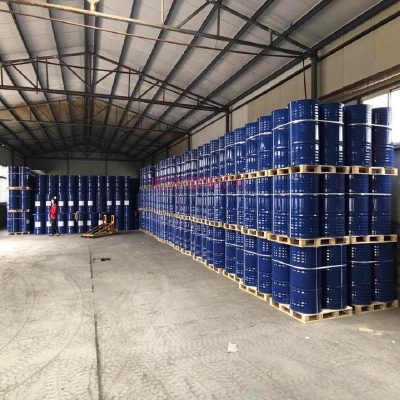-
Categories
-
Pharmaceutical Intermediates
-
Active Pharmaceutical Ingredients
-
Food Additives
- Industrial Coatings
- Agrochemicals
- Dyes and Pigments
- Surfactant
- Flavors and Fragrances
- Chemical Reagents
- Catalyst and Auxiliary
- Natural Products
- Inorganic Chemistry
-
Organic Chemistry
-
Biochemical Engineering
- Analytical Chemistry
- Cosmetic Ingredient
-
Pharmaceutical Intermediates
Promotion
ECHEMI Mall
Wholesale
Weekly Price
Exhibition
News
-
Trade Service
Oxford-based analyst Aurora Energy Research released a report this week predicting strong growth
in subsidy-free renewables across much of northwest Europe.
The report, titled "Managing Renewable Energy Market Risk", states that in the UK alone, up to 18 GW of subsidy-free renewables could be installed between now and 2030, and that the grid was connected to northwest Europe (which includes the UK, Germany, France, Ireland, the Netherlands and Belgium).
The report pointed out that by 2030, subsidy-free renewable energy in northwest Europe will reach 60 GW, of which solar photovoltaic will account for half of the total
.
As a result, the region's overall renewable energy sector could unlock up to €180 billion in investment, of which €64 billion will go to subsidy-free renewable energy
.
Speaking at Aurora Energy Research's Spring Forum this week, keynote speaker Mateusz Wronski said: "In 2010, when the UK electricity market reform process was launched, few people would have imagined that by 2018 we would be providing a subsidy-free future
for renewables.
However, this is where we have come and our research clearly shows the huge incentives and potential in the market, not just in the UK but across Europe
.
This will be a real change
for the energy industry and policymakers.
”
In 2017, subsidy-free renewables, particularly solar, grew significantly, with projects
in the UK, Germany and the Netherlands.
Meanwhile, in Sweden, GE and Green Investment Group signed a new 650 MW PPA project with zero subsidies
at all.
Analysts say the continued emergence of corporate PPAs is helping to de-risk projects, and other factors such as savings from co-located battery storage systems at large renewable energy sites will also have a positive impact
on subsidy-free renewable energy growth.
Along with this growing confidence and creativity in installations and capital investments, continued cost reductions, especially solar, will achieve grid parity across the region by 2020
.
Higher commodity prices will also accelerate this shift
.
Oxford-based analyst Aurora Energy Research released a report this week predicting strong growth
in subsidy-free renewables across much of northwest Europe.
The report, titled "Managing Renewable Energy Market Risk", states that in the UK alone, up to 18 GW of subsidy-free renewables could be installed between now and 2030, and that the grid was connected to northwest Europe (which includes the UK, Germany, France, Ireland, the Netherlands and Belgium).
The report pointed out that by 2030, subsidy-free renewable energy in northwest Europe will reach 60 GW, of which solar photovoltaic will account for half of the total
.
As a result, the region's overall renewable energy sector could unlock up to €180 billion in investment, of which €64 billion will go to subsidy-free renewable energy
.
Speaking at Aurora Energy Research's Spring Forum this week, keynote speaker Mateusz Wronski said: "In 2010, when the UK electricity market reform process was launched, few people would have imagined that by 2018 we would be providing a subsidy-free future
for renewables.
However, this is where we have come and our research clearly shows the huge incentives and potential in the market, not just in the UK but across Europe
.
This will be a real change
for the energy industry and policymakers.
”
In 2017, subsidy-free renewables, particularly solar, grew significantly, with projects
in the UK, Germany and the Netherlands.
Meanwhile, in Sweden, GE and Green Investment Group signed a new 650 MW PPA project with zero subsidies
at all.
Analysts say the continued emergence of corporate PPAs is helping to de-risk projects, and other factors such as savings from co-located battery storage systems at large renewable energy sites will also have a positive impact
on subsidy-free renewable energy growth.
Along with this growing confidence and creativity in installations and capital investments, continued cost reductions, especially solar, will achieve grid parity across the region by 2020
.
Higher commodity prices will also accelerate this shift
.







